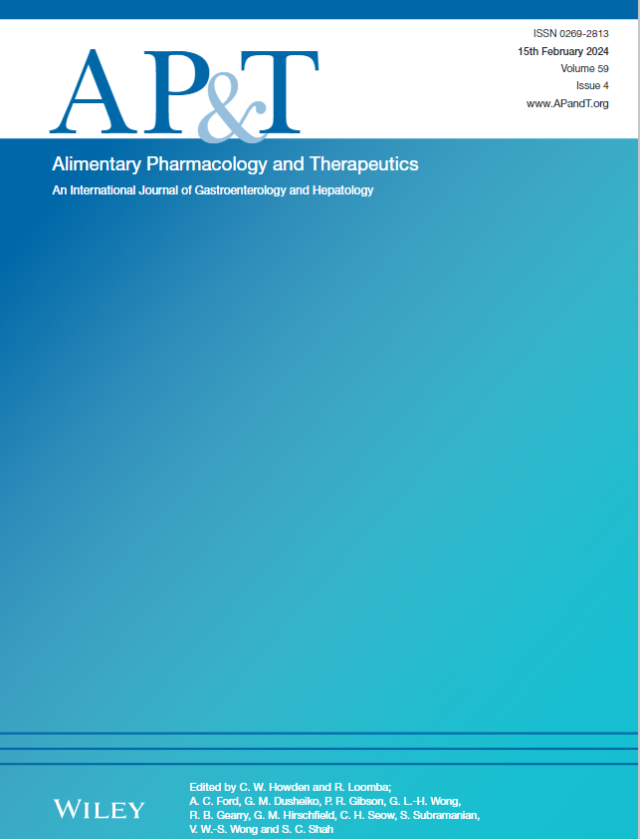通过经验供体选择和优化剂量改善艰难梭菌感染胶囊化粪便菌群移植的临床效果:一项质量改进研究
IF 6.7
1区 医学
Q1 GASTROENTEROLOGY & HEPATOLOGY
引用次数: 0
摘要
粪便微生物群移植(FMT)对艰难梭菌感染(CDI)有效,但现实世界的有效性数据有必要改进治疗算法。我们之前发现,FMT的有效性因供体而异,单粒FMT给药的效果低于预期。目的通过经验供体排除和应用优化的胶囊FMT给药方案来改善FMT的效果。在这项多地点的丹麦质量改善研究中,我们纳入了2019年6月24日至2024年9月30日接受基于胶囊的FMT治疗的CDI患者。主要终点是FMT后8周难辨梭菌相关腹泻(CDAD)的治愈。我们使用分别监测主要FMT中心和外部FMT站点的统计过程控制图来评估这一点。在调整患者、供体和CDI相关因素的同时,我们使用多变量、混合效应logistic回归分析来评估FMT剂量的影响。结果纳入患者1176例(FMT治疗1707例)。在外部FMT部位,在2022年11月排除了三个表现不佳的供体后,一次FMT治疗的治愈率从50%(95%置信区间(CI): 45%-56%)变为59%(55%-63%)。在2024年2月实施两剂量FMT胶囊给药方案后,治愈率增加到72%(65%-77%)。调整后,两剂量FMT胶囊给药方案的影响仍具有统计学意义(优势比1.22;95% CI 1.16-1.28; p < 0.001)。结论经验性供体选择和两剂量FMT胶囊方案改善了大规模系统治疗CDI患者的临床疗效。本文章由计算机程序翻译,如有差异,请以英文原文为准。
Improving Clinical Outcomes of Encapsulated Faecal Microbiota Transplantation for Clostridioides difficile Infection Through Empirical Donor Selection and Optimised Dosing: A Quality Improvement Study
BackgroundFaecal microbiota transplantation (FMT) is effective for Clostridioides difficile infection (CDI), but real‐world effectiveness data are warranted to refine treatment algorithms. We previously found that FMT effectiveness varied with donors, and the effect of a single capsule FMT administration was lower than expected.AimsTo improve FMT outcomes through empirical donor exclusion and application of an optimised capsule FMT dosing regimen.MethodsIn this multi‐site Danish quality improvement study, we included patients with CDI treated with capsule‐based FMT from 24 June 2019 to 30 September 2024. The primary outcome was cure of C. difficile p < 0.001).ConclusionEmpirical donor selection and a two‐dose capsule FMT regimen improved clinical outcomes in a large‐scale system treating patients with CDI.
求助全文
通过发布文献求助,成功后即可免费获取论文全文。
去求助
来源期刊
CiteScore
15.60
自引率
7.90%
发文量
527
审稿时长
3-6 weeks
期刊介绍:
Alimentary Pharmacology & Therapeutics is a global pharmacology journal focused on the impact of drugs on the human gastrointestinal and hepato-biliary systems. It covers a diverse range of topics, often with immediate clinical relevance to its readership.

 求助内容:
求助内容: 应助结果提醒方式:
应助结果提醒方式:


